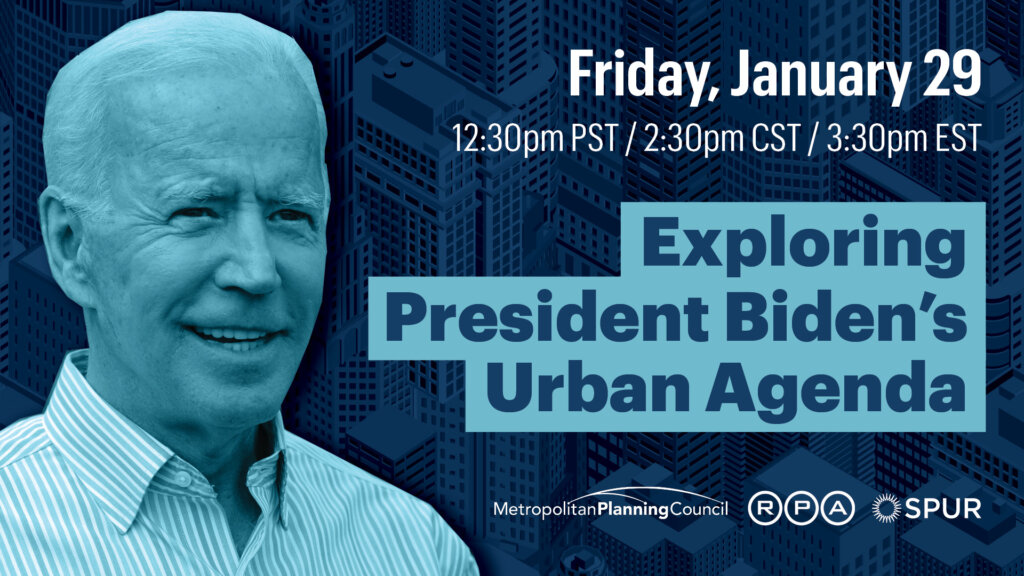Exploring Biden’s Urban Agenda

From the outset, it’s clear that the Biden Administration will approach urban policy and planning with a different lens than its predecessor. This Jan. 29, 2021, event featured the leaders of SPUR of the Bay Area, the Metropolitan Planning Council of Chicago, and Regional Plan Association of the New York City-New Jersey-Connecticut region, discussing what the next federal administration may mean for regional planning, research, and policy change.
Speakers:
- Alicia John-Baptiste, President & CEO, SPUR
- MarySue Barrett, President, Metropolitan Planning Council
- Tom Wright, President, Regional Plan Association
Moderator:
- Calvin Gladney, President & CEO, Smart Growth America
Excerpts from the event:
“As advocates, we need to follow through, follow up, show up.” – Calvin Gladney, Smart Growth America
“We are expecting a partnership for the federal government to re-engage.” – Tom Wright, Regional Planning Association
On housing
“The redlining process seen since the Great Migration and policy implemented in the ’40s follows patterns we’ve seen in COVID. It is etched in our region, and inexcusable, and we need help to break out.” – MarySue Barrett, Metropolitan Planning Council
“What is the appropriate role of the federal government in housing, and how can they support local and regional efforts? Much like parents of teenagers, where you can show them the way, what is the fine line between local control?” – Gladney
On transportation and climate change
“Southeast Queens residents living in public housing are the most vulnerable in the nation, threatened by sea levels rising. We’re expecting the federal government to re-engage.” – Wright
“We’re seeing a rebalancing effect. This moment raises the question, “Why do I live where I live, is this where I want to be?” – Alicia John-Baptiste, SPUR
”People will always want to be located close to capital. This moment will be good for national cohesion with greater diversity in living and working across industries.” – Wright
“We’re still trying to make public transit fit a business model. Its inequitable to not have it … public transit equals public good.” – John-Baptiste
“We need to change the narrative. As transit ridership declines [due to COVID], people in Chicago with varying incomes choose other modes of transportation. Our system is not equitable and was not designed to serve the travel needs of essential workers.” – Barrett
On equity
“Unless we target to remove forms of oppression, it will self-perpetuate. If we can correct the whole system, for whom it was designed to oppress … it will improve for everyone.” – John-Baptiste, SPUR